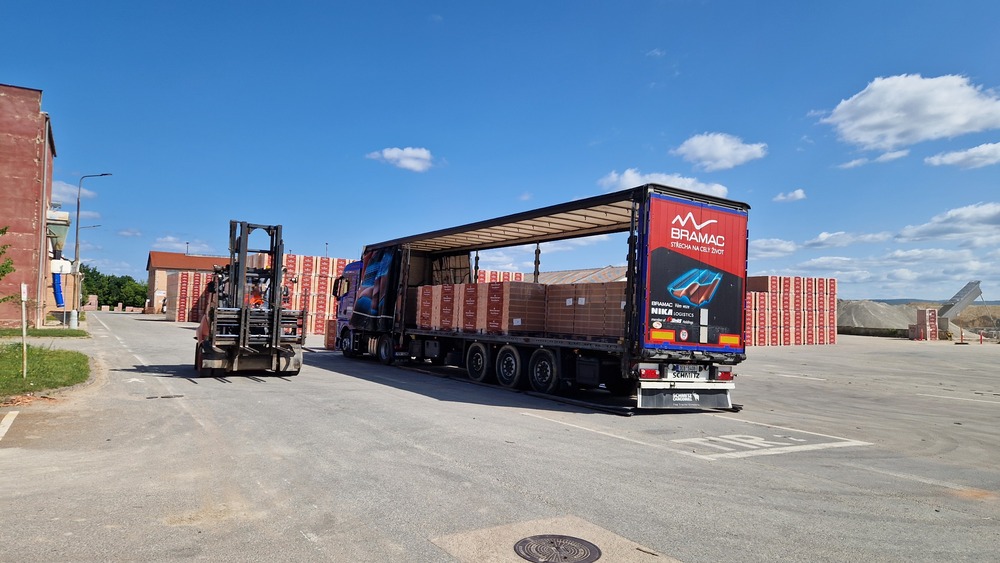Technology
Key applications of RFID
1. 8. 2025
4 minutes read
RFID technology today helps companies increase efficiency, automate processes and control the movement of goods in real time. Its use extends far beyond retail - it is increasingly being used in manufacturing, logistics, healthcare and construction. In this article, we look at specific industries where RFID really makes sense.

Where does RFID make sense everywhere?
RFID is no longer just a retail tool. It is a universal technology that finds applications in many industries – from manufacturing and logistics to healthcare and construction. With its flexibility, accuracy and ability to automate real-time tracking of goods or equipment, RFID is becoming a key element of digital transformation.
In this article, we look at where RFID can deliver major benefits and why companies around the world are increasingly deploying it.
Manufacturing and Industry
In manufacturing, RFID is an invaluable tool for tracking materials, work-in-progress and final products. Tags on individual parts or crates allow automated control of material flow through the production line, control assembly procedures and ensure quality at every step of the process.
For example, the system can automatically stop production if a part is missing or not registered correctly. This significantly reduces errors, rejects and increases productivity. In addition, RFID facilitates product traceability, which is essential in the automotive, aerospace or electronics industries.
Logistics and Warehousing
Warehouses and logistics centers are one of the most natural environments for RFID. The technology enables fast and error-free receipts, discharges and inventory, while increasing transparency throughout the supply chain.
RFID can track the location of shipments in real time, control loading and unloading, and provide automated scanning of goods without human intervention thanks to gates at entrances and exits. This delivers increased efficiency, time savings and minimised errors – key factors in today's dynamic supply chain environment.
Healthcare
In healthcare, RFID helps track the movement of drugs, medical devices, instruments and patients. It allows you to tag sterile equipment, manage the movement of staff or patients on wards, and ensure that everyone gets exactly what they need.
RFID can prevent medication mix-ups or the loss of expensive equipment, while improving patient safety. Combined with an electronic documentation system, it can greatly simplify routine processes and reduce waiting times.
Construction and Property Management
RFID is increasingly being used on construction sites where the movement of materials, tools, equipment or even workers needs to be tracked. It allows to avoid losses, optimize the use of machines and streamline inventory management.
For example, each tool can be tagged and a record kept of who borrowed it and where it was returned. This reduces losses and increases accountability. RFID can also be used for access control systems or checking security features on site.
Retail and e-commerce
Retail has traditionally been a pioneer of RFID. As we wrote in a previous article, this technology enables fast inventory, inventory tracking and improved customer experience. But it works just as well in e-commerce warehouses, where it speeds up order picking, reduces errors and provides accurate data on every movement of goods.
Education, Museums and Libraries
A lesser-known but increasingly common use of RFID is tracking equipment and inventory in schools, universities, museums or libraries. RFID can automate borrowing, prevent the loss of books, display the location of exhibits or track educational materials.
Transportation, Aviation and Airports
Airline companies and airports use RFID to track luggage, spare parts and security equipment, for example. It enables accurate tracking of lost luggage, but also the lifetime of components in aircraft. In personal transport, RFID serves as a smart ticket – for example, on public transport or at sporting events.
RFID is everywhere you need to keep track
RFID is a technology that connects the world of physical objects with digital intelligence. Its ability to quickly and flawlessly identify and track objects has applications in dozens of different industries. Whether it's speeding up production, reducing errors in warehouses, making healthcare safer, or making retail more transparent, RFID is helping companies gain control over what they own, where it is, and what's happening to it.
Back to top